Given the increasing demand for natural resins in the global market as companies focus more on their green footprint and allied with the decrease in the supply of the Vinsol resin, Polytrade offers its line of Carbofen products as a substitute and extender for Vinsol.
With the growing emphasis on sustainable construction practices, the demand for natural, plant-based additives like Carbofen has significantly increased. Derived from renewable sources, Carbofen not only matches the performance of traditional Vinsol resins but also aligns with eco-friendly building standards, offering a greener alternative for modern construction needs.
A Quick Overview
After opening a new office in Miami, FL, USA at the end of 2017, the year of 2018 was full of victories. Our company closed a deal for blending and distribution services with 2 American companies in order to better service our clients in the North American market. In addition, Polytrade secured a business partnership with a couple of international logistics companies to improve our lead and delivery times. Notwithstanding, we make sure that Polytrade has an inventory buffer at all times and that Carbofen and Respin are available for immediate freight and sea shipping.
The year of 2019 was focused on research and development to address client pains and enhance customer satisfaction. Polytrade’s different departments worked together to collect qualitative data, brainstorm different solutions and test new ideas. After a lot of hard work, we are proud to announce that in 2020 Polytrade’s portfolio was completely rehauled. Furthermore, new products have joined the Respin and Carbofen family.
The Applications of the New and Improved Carbofen Line of Products
Our Carbofen line of natural resins has successfully been improved using the knowledge, expertise and testing accumulated so far in Polytrade’s journey of value creation. Our company now offers 10 products in the Carbofen family!
Furthermore, all of the Carbofen products act as Vinsol Resin replacements in a variety of applications and industries, such as:
- Additives, admixtures & air entraining agents for concrete made of Portland cement,
- Air entraining agents and plasticizers for mortar mixes in wet and dry systems,
- Anionic emulsifying agents for slow set (SS-1 and SS-1H) bitumen emulsions for road surface binders and waterproofing formulations,
- Tackifier for automotive adhesives, bonding of metal parts and gasket sealant formulations,
- Natural resin for foundry refractory coatings, casting varnishes and foundry molds.
Polytrade’s Carbofen line stands out by offering a range of products tailored to various applications, from concrete admixtures to mortar mixes. Unlike traditional Vinsol resins, Carbofen products are available in both liquid and powder forms, providing greater flexibility and ease of use. Additionally, certain Carbofen variants come pre-neutralized, simplifying the mixing process and enhancing efficiency on construction sites.
Comparing the Vinsol and the Carbofen Products Side by Side
As you can see from the list above, Carbofen is a Vinsol substitute since it can be as extensively applied as the Vinsol resins themselves. For instance, depending on the application, the Vinsol Resin can be exchanged by Carbofen Resin, Carbofen 6060, CarboGasket or CarboBinder. Additionally, the Vinsol Flake can be replaced by Carbofen Gold and CarboGasket Flake. Also, the Vinsol NVX Resinate can be substituted by Carbofen NCX and Carbofen-X.
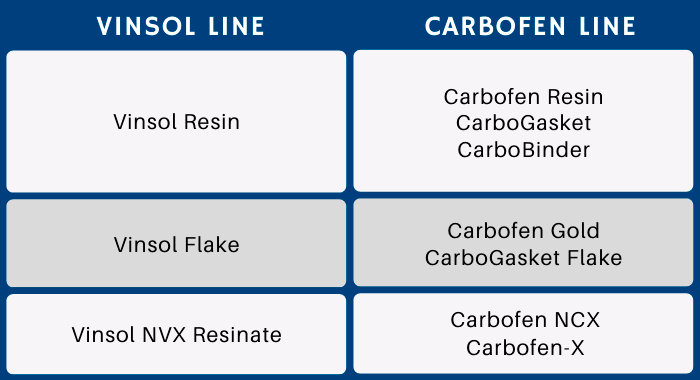
However, there are other products within the Carbofen line that have no countertype within the Vinsol family. These products are Carbofen Admix and Carbofen Air+. Differently from the rest of the portfolio, these two products are liquid solutions, which were developed by Polytrade due to client demand for convenience.
Comparing the Vinsol and Carbofen Line of Products per Application
The Carbofen product line is extensive and is a Vinsol resin replacement for innumerous applications in several industries. Below we will discuss the utilization of the Carbofen family when replacing the Vinsol resins in the following industries:
- Concrete admixtures,
- Mortar mixes,
- Anionic bitumen emulsions,
- Automotive adhesive and gasket sealants,
- Foundry refractory coatings.
Carbofen Substitutes Vinsol in Concrete Admixture Formulations
Usually, clients purchase Carbofen Resin and Carbofen Admix as air entraining agents for concrete made of Portland cement. Just like Vinsol, both of Polytrade’s products follow ASTM C260, Standard Specification for Air-Entraining Admixtures for Concrete Made of Portland Cement.
The active principle that makes these two materials excellent air entraining agents is the same. However, they have slightly different manufacturing processes. Furthermore, their presentation is different. Carbofen Resin is a powder, while Carbofen Admix is a liquid. Also, Carbofen Resin has to be neutralized before being added into the concrete mix. Conversely, Carbofen Admix is neutralized and can be diluted to the desired proportion using water.
Of course, the client will ultimately choose what material is most convenient to their needs and manufacturing process. But when it comes to entraining air in a wet concrete mix, we suggest Carbofen Resin or Carbofen Admix. However, if the final application requires a powder that is water-soluble, the right offering is Carbofen NCX. Thus, both Carbofen Resin and Carbofen Admix can replace the Vinsol Resin (flake or powder) as an air entraining agent for concrete. While Carbofen NCX can substitute Vinsol NVX Resinate for applications in dry mix.
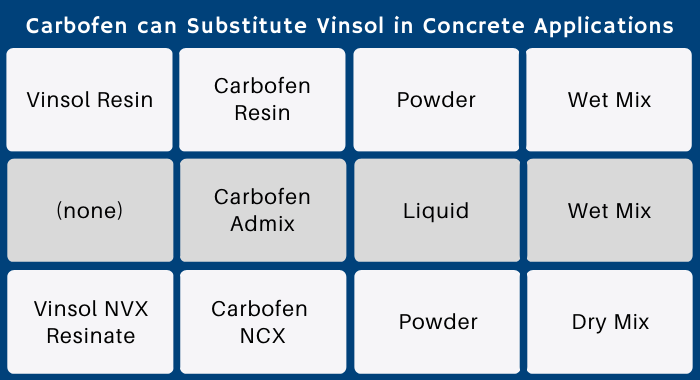
Vinsol is Replaced by Carbofen in Mortar Mix Formulations
For mortar mix formulations, the Carbofen line of products has air entraining agents and plasticizers for both wet and dry mix applications, just like the Vinsol resins. The recommended products for mortar formulations are Carbofen Resin, Carbofen Air+, Carbofen NCX and Carbofen-X.
Similarly to concrete applications, Carbofen Resin or Carbofen Air+ are air entraining agents that can be used to substitute the Vinsol Resin for wet mortar mixes. But for dry mix, Carbofen NCX and Carbofen-X are the natural resins of the product line that replace Vinsol NVX Resinate as air entraining agents.
Frequently, Carbofen NCX and Carbofen-X are the materials sought after for dry mix mortar because these natural resins are already neutralized and presented in a free-flowing powder – unlike Carbofen Resin and Carbofen Air+. In other words, both Carbofen NCX and Carbofen-X can be applied directly into the mortar mix as a powder without the need to be saponified or dissolved/diluted in water beforehand.
But what is the difference between Carbofen NCX and Carbofen-X? Both materials are remarkably similar, both powders soluble in water and effective air entraining agents. However, Carbofen NCX was developed for mortar applications using Portland cement, while Carbofen-X was created for air entrainment in mortar formulations made of cement other than Portland.
Once again, the final choice of what product to purchase lies solely in the client’s hands. Our team orients that wet mix applications are better served by Carbofen Resin and Carbofen Air+, while Carbofen NCX and Carbofen-X are more suited for dry mix formulations.
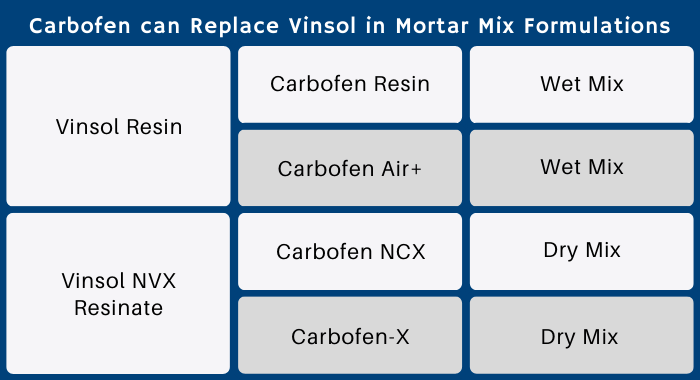
Carbofen Substitutes Vinsol in Anionic Bitumen Emulsions
For the bitumen emulsion industry, Polytrade has Carbofen Gold. Other than the Carbofen family, our team of experts created in 2020 an original product that was specifically designed to be used as an anionic emulsifying agent for slow set (SS-1 & SS-1H) emulsions, Emulsifen G5000. Now our clients have more options for anionic emulsifiers.
The resulting bitumen emulsions manufactured using Carbofen Gold or Emulsifen G5000 can be employed in several formulations for road surface binders, such as:
- Slurry seals,
- Tack coats,
- Base stabilization,
- Soil stabilization,
- Fog spray,
- Crack seal,
- Driveway and tennis court paving,
- Dust suppression and dust palliatives,
- Cold mixes.
Also, anionic emulsions milled with Carbofen Gold and Emulsifen G5000 are also used for waterproofing and roofing formulations.
Just like the Vinsol resins, Polytrade’s materials for this industry produce high quality and stable bitumen emulsions that are eco-friendly and cost-effective. Both Carbofen Gold and Emulsifen G5000 can substitute Vinsol Flake as anionic bitumen emulsifiers. Carbofen Gold is a flake and needs to be neutralized before being added to the mill. However, Polytrade also offers Emulsifen G5000, a liquid product that is conveniently water-soluble.
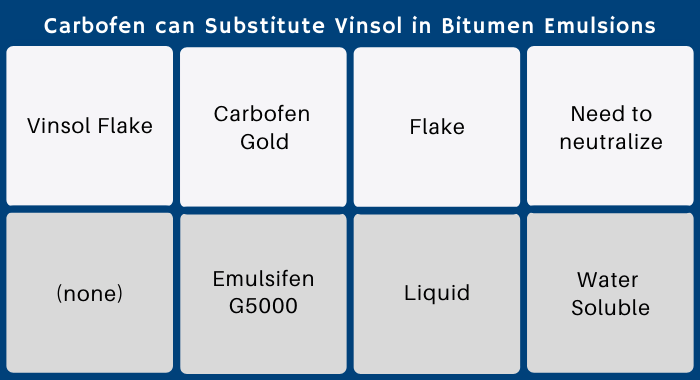
Vinsol is Replaced by Carbofen in Automotive Adhesive and Sealant Formulations
For the adhesive and automotive sealant industry, the following tackifiers are sought after:
- CarboGasket Flake,
- CarboGasket,
- CarboBinder.
The above-mentioned products are thermoplastic natural resins with powerful bonding capabilities. Also, they are substitutes to the Vinsol resins as a tackifier for automotive adhesive and sealant formulations. Thus, CarboGasket Flake is a direct countertype to the Vinsol Flake, while CarboGasket and CarboBinder are substitutes for the Vinsol Resin.
Furthermore, the factor that decides which resin to pick depends solely on the client’s application. This means that depending on the desired consistency of the adhesive/sealant and the machinery available, one will be picked over the other. Consequently, it is paramount a buyer test the material that they are more familiar with to maximize convenience and optimize their production process.
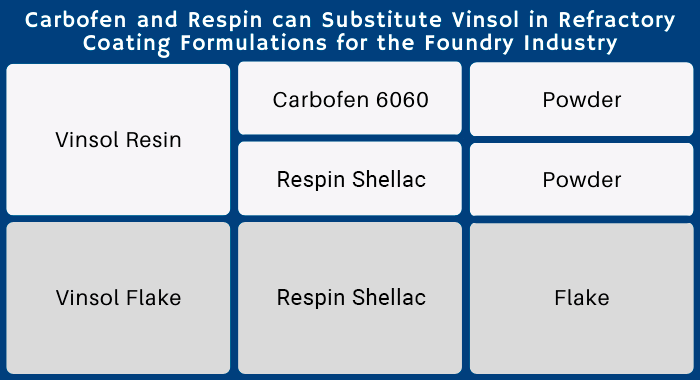
Carbofen Substitutes Vinsol in Foundry Coating Formulations
Foundry coatings are an essential part of the foundry industry. This nifty product is applied to foundry molds to decrease the roughness of finished castings. The smoother finish generates cost-savings in polishing hours, thus reducing the utility bill and refocusing human labor to more productive tasks.
The products in the Polytrade portfolio focused on foundry coating formulations are Carbofen 6060, Respin Shellac. All of these natural resins can replace Vinsol products: the Vinsol Resin is substituted by Carbofen 6060 and Respin Shellac, while Vinsol Flake is replaced by Respin Shellac for coating formulations in the foundry industry.
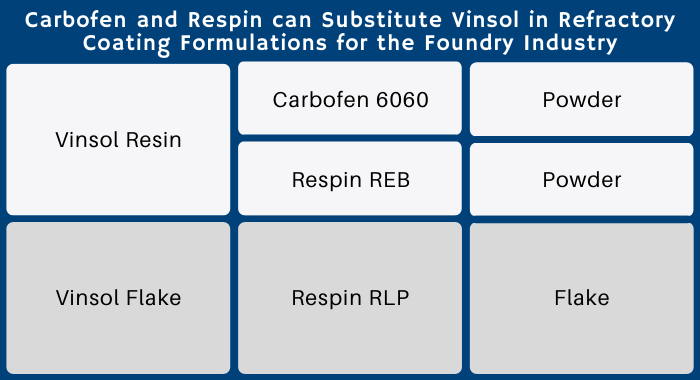
Looking for a sample?
Our team is happy to help, contact us!
Enjoyed the read?
Then check out these related blog posts:
- Top 3 Reasons to Use Air Entraining Agents in Concrete
- An Introduction to Bitumen Emulsions
- 5 Reasons to use Anionic Bitumen Emulsions Over Cationic Emulsions
- How does Base Stabilization and Soil Stabilization Differ?
- What is the Freeze-Thaw Cycle in Concrete?
Published on 25-JAN-2019. Last Updated on 30-APR-2021.


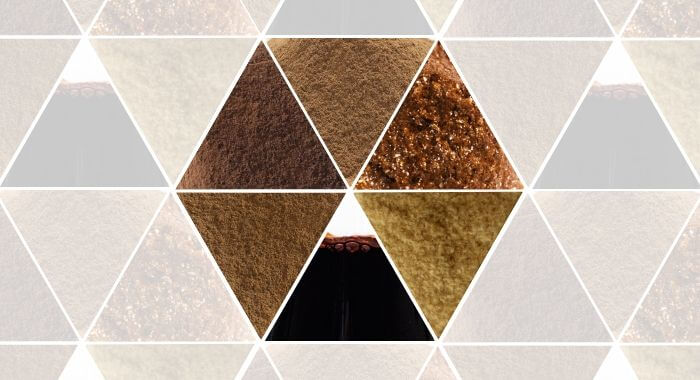

1 thoughts on “Carbofen is a Vinsol Resin Substitute”
Comments are closed.